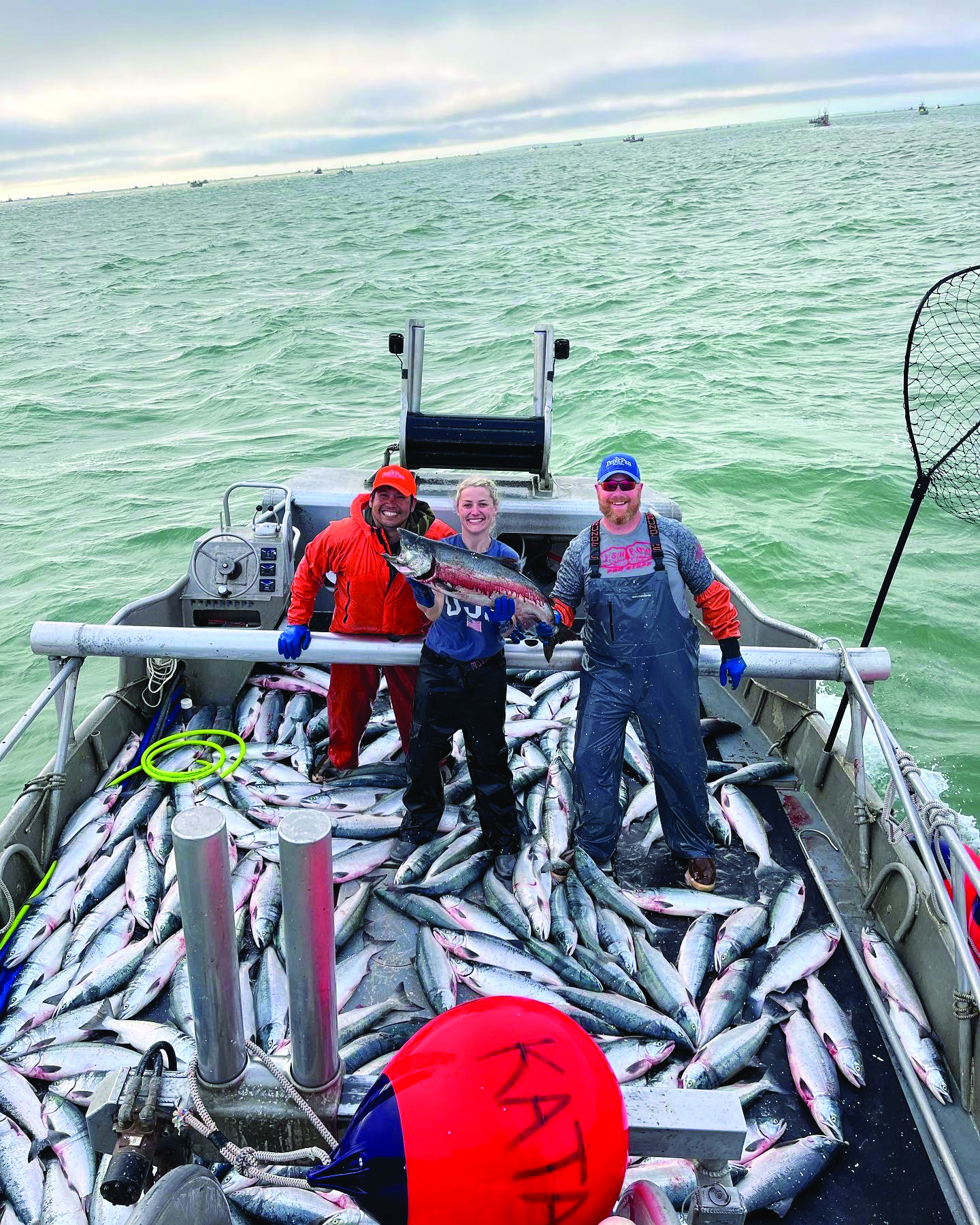On August 10th, Bristol Bay celebrated Alaska Wild Salmon Day as a “day of action” on the heels of a record-breaking salmon season this year.
In late July, Alaska Department of Fish and Game released the final Daily Run Summary for the 2022 season in Bristol Bay, which estimated that the 2022 sockeye run numbered 78,366,952 million fish, breaking the previous record of 67.7 million sockeye set in 2021. The commercial catch of 59,550,022 sockeye through July 31 broke the previous catch record set in 1995.
“Those numbers continue to increase as some fishing continues, and will be finalized this fall,” according to the Natural Resources Defense Council (NRDC) in a press statement. “The record-breaking 2022 season is due to thousands of years of Indigenous stewardship and sustainable management that has kept Bristol Bay’s watershed unpolluted and pristine.”
More than a dozen Bristol Bay communities held a day of action on August 10, calling on the Biden administration to finalize Clean Water Act protections that could protect the region’s record-breaking salmon runs for future generations.
“Salmon have provided for the people of Bristol Bay for thousands of years due to our ancestral stewardship of our pristine lands and waters,” said Alannah Hurley, Executive Director of the United Tribes of Bristol Bay. “We’re grateful our salmon continue to return home in record numbers but our watershed is still facing the grave threat of mines like Pebble. Bristol Bay remains a salmon stronghold and will only continue if it is permanently protected. The EPA must finalize Clean Water Act protections for the headwaters of our fishery this year.”
Commercial fishermen also responded to the record-breaking season in Bristol Bay.
“As I and thousands of other fishermen wrap up another record-breaking season, we are in absolute awe of Bristol Bay’s abundance. Once again Bristol Bay has outdone itself, reminding us of what’s possible when salmon have the healthy habitat and clean water that they need to thrive,” said Katherine Carscallen, Executive Director of Commercial Fishermen for Bristol Bay.
“Once again though, we fished with the threat of the Pebble Mine hanging over us all season,” she continued. “We worked hard this season to deliver a record breaking 59 million wild sockeye to market and now we’re asking the EPA – once again – to put Clean Water Act protections in place for Bristol Bay by the end of this year.”
As tribes, commercial fishermen and residents of the area were participating in the record-breaking season, they have also been engaged in a comment period on the Environmental Protection Agency’s Proposed Determination (PD) regarding the Pebble deposit in the Bristol Bay watershed.
So far there have been hundreds of thousands of comments submitted in support of EPA finalizing these protections as soon as possible. The public comment period closes on September 6, 2022. Pebble Mine is a proposed open pit mine intended to extract copper, gold and molybdenum. If fully built, the mine would produce up to 10.2 billion tons of toxic waste that would remain on site forever – threatening to destroy one of the last thriving salmon runs in the world
“It’s hard to imagine a more compelling argument for an EPA veto of the Pebble Mine than Mother Nature’s brilliant display in Bristol Bay this summer,” said Joel Reynolds, western director and senior attorney for the NRDC. “The record run of 78.4 million wild salmon is a resounding affirmation of the urgent need for protection of this national treasure and the people and wildlife that it sustains. EPA must finish the job now that it began over a decade ago.”







